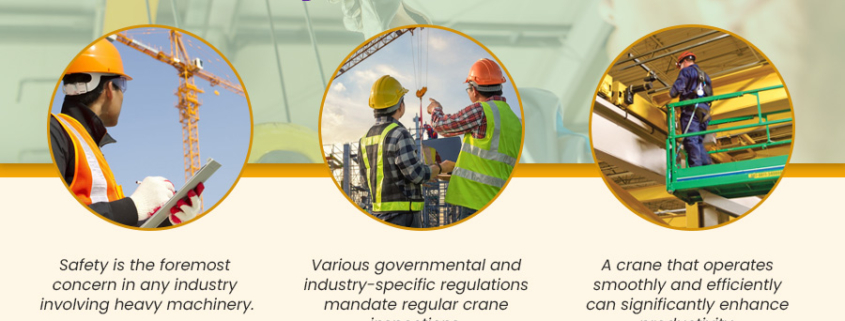How Dielectric Testing Louisiana Protects Electrical Systems and Workers
Electrical systems power our world, from everyday appliances to industrial machinery. Ensuring these systems operate safely is crucial, and one of the key methods for doing so is dielectric testing.
However, this process ensures the integrity of electrical insulation, preventing hazards such as shocks, fires, and system malfunctions. But what exactly Dielectric Testing Louisiana do, and why is it so essential in maintaining electrical safety?
Understanding Dielectric Testing Louisiana
At its core, dielectric testing evaluates an electrical component’s ability to withstand high voltage without breaking down. In simple terms, it tests the insulation of electrical devices to ensure that electricity flows where it should—and nowhere else.
There are two primary forms of dielectric testing:
- Dielectric Withstand Testing (or Hipot Testing): This assesses whether an electrical component can endure a specified voltage level for a set period without insulation failure. This ensures that the insulation can prevent electrical leakage and maintain its protective properties even under higher-than-normal conditions.
- Dielectric Breakdown Testing: This tests insulation by applying voltage until the point of failure. This method helps establish the limits of a material’s insulating ability, useful for research or determining operational limits.
Why Is Dielectric Testing Louisiana Necessary?
Dielectric withstand testing is essential because it ensures electrical devices are safe to use in real-world conditions. Here’s why it’s vital:
Prevention of Electrical Hazards
Electrical shocks and short circuits are significant risks in any system that relies on electricity. Weak or faulty insulation can cause electricity to escape from its intended path, creating hazards for users. Dielectric withstand testing ensures that the insulation is strong enough to contain the electricity and prevent these dangers. By verifying that insulation can handle higher-than-normal voltages, this testing prevents equipment failures that can result in injuries, electrical fires, or even fatalities.
Compliance with Industry Standards
Many industries, especially those working with high-voltage equipment, must comply with strict safety standards. These regulations, such as those from the International Electrotechnical Commission (IEC) or the Underwriters Laboratories (UL), require dielectric testing as part of their safety protocols. Passing dielectric withstand tests demonstrates that a product meets these safety standards, which is crucial for manufacturers and service providers who must prove their equipment is safe for use.
Quality Assurance in Manufacturing
Electrical products go through rigorous manufacturing processes, and even minor faults can result in serious safety risks. Dielectric testing serves as a quality control measure, ensuring that products leaving the factory are free of insulation defects or weaknesses. This testing helps manufacturers maintain high-quality standards and protects both the company and its customers from costly recalls or potential lawsuits arising from faulty equipment.
Extending Equipment Lifespan
Equipment that passes dielectric withstand tests is less likely to experience insulation failure during its operational life. Over time, this can reduce the likelihood of malfunction and extend the overall lifespan of the device or system. Ensuring strong insulation from the start helps prevent wear and tear that could degrade the equipment faster.
How Does Dielectric Testing Work?
In dielectric withstand testing, high voltage is applied to an electrical device for a set duration, typically ranging from seconds to minutes. The goal is to see if the insulation can withstand this voltage without breaking down. If the insulation holds up, the device passes the test and is deemed safe for use.
The process involves:
- Applying High Voltage: Voltage higher than the normal operating voltage is applied to the insulation material.
- Monitoring for Current Leakage: The test checks if any current leaks through the insulation. If the current stays within a certain threshold, the insulation is considered effective.
- Ensuring No Breakdown: If the insulation breaks down, the voltage will surge through unintended paths, indicating a failure.
This testing typically uses specialized equipment known as hipot testers (short for high potential). These devices are designed to generate the high voltages necessary for dielectric testing while ensuring the safety of operators and equipment.
The Importance of Regular Equipment Inspections
While dielectric testing is a vital step during the manufacturing process, ongoing Equipment Inspections Louisiana are equally important throughout the equipment’s lifespan. Electrical insulation can deteriorate over time due to factors such as wear, environmental exposure, or mechanical damage. Regular inspections help catch any degradation before it leads to serious failures.
Here are key benefits of proper equipment inspections:
- Identifying Wear and Tear Early: Inspections can reveal early signs of insulation damage, such as cracks, abrasions, or exposure to moisture. These issues can be addressed before they lead to electrical faults.
- Ensuring Compliance with Safety Standards: Routine inspections ensure that electrical equipment continues to meet safety standards long after the initial dielectric tests have been completed.
- Preventing Costly Downtime: Faulty insulation can lead to system failures, which in turn cause costly production delays. Regular inspections and dielectric testing minimize the risk of unexpected shutdowns.
- Protecting Personnel: Electrical safety is paramount, especially in industries where workers handle high-voltage equipment. Inspections ensure that equipment remains safe for operation, reducing the risk of injury.
Conclusion – #1 Best Dielectric Testing Louisiana
In a world that relies heavily on electrical power, dielectric testing plays a crucial role in ensuring the safety and reliability of electrical equipment. Dielectric Testing Louisiana verifies the integrity of insulation, preventing electrical hazards and protecting both equipment and personnel. Meanwhile, ongoing inspections are necessary to ensure that equipment remains in peak condition throughout its operational life.
By integrating dielectric testing into both the manufacturing process and regular maintenance schedules, industries can ensure their equipment operates safely and efficiently. Ultimately, dielectric withstand testing is not just a technical requirement—it’s a vital practice that safeguards lives and maintains the integrity of our electrical systems. For more queries, contact KEMPCO Inspection Services, Inc. team at (713) 926-1005 today.





